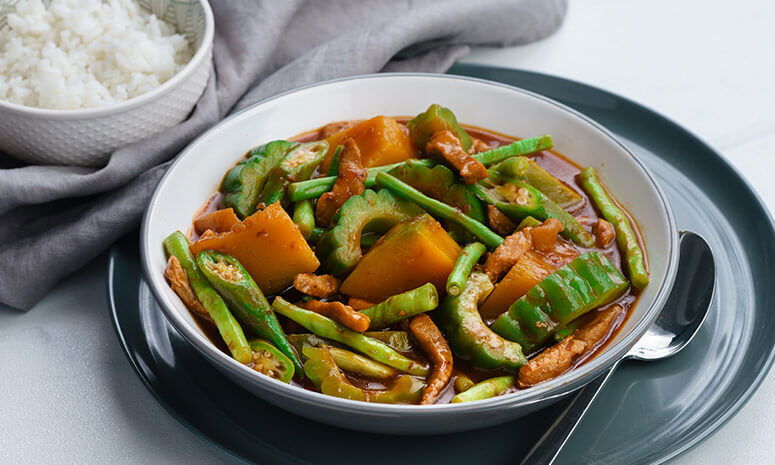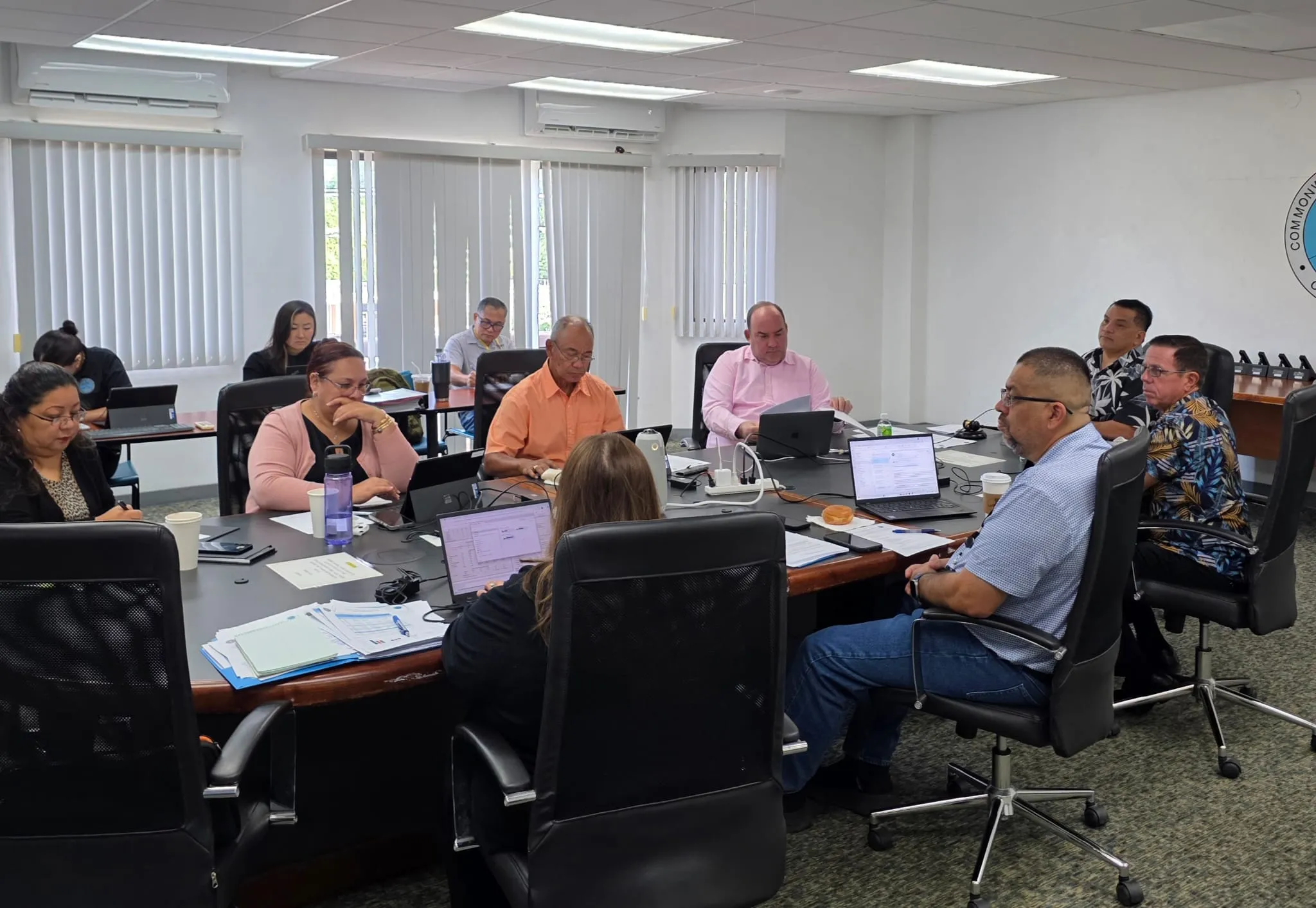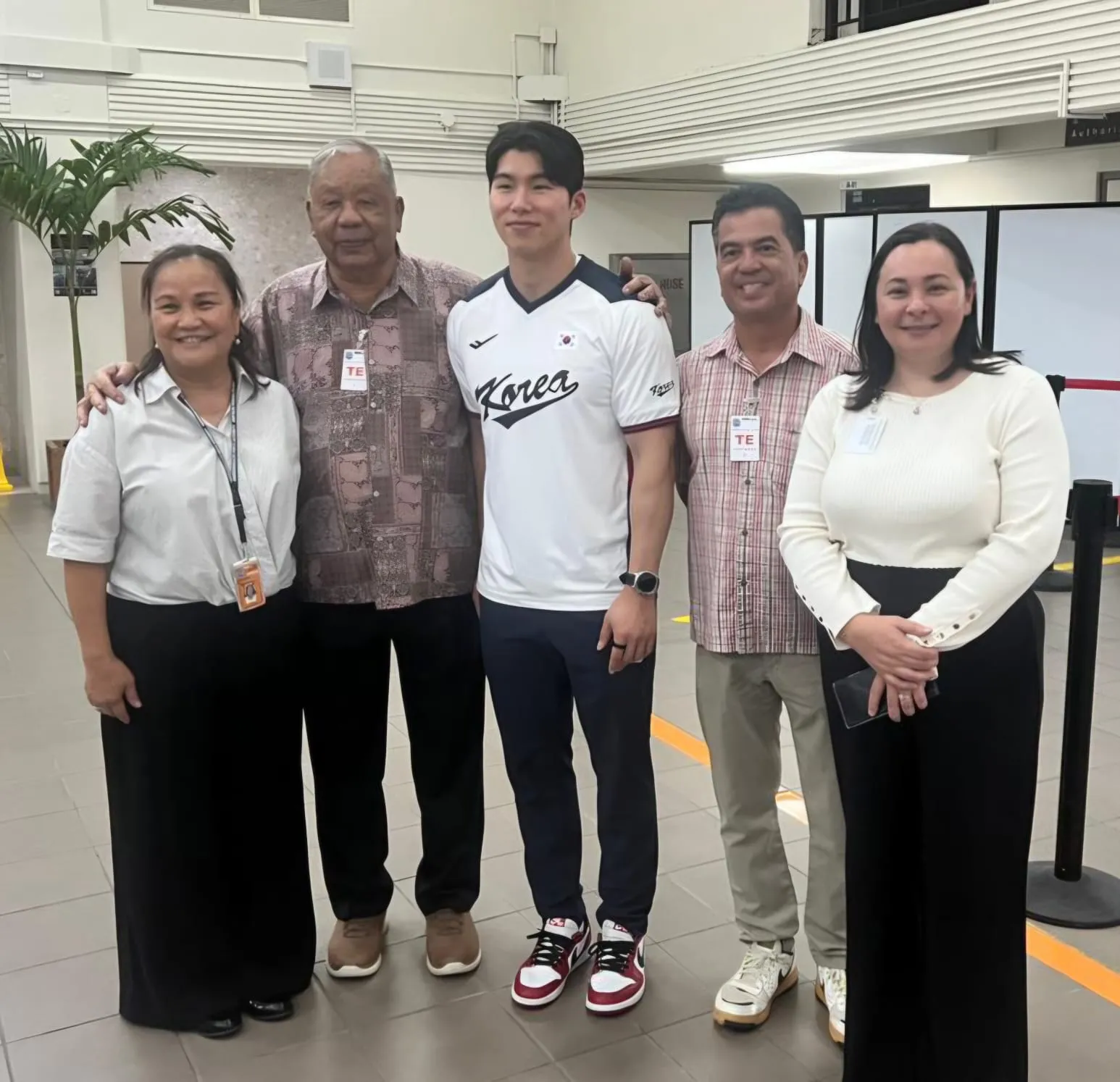
Pinakbet
The following essay won first prize in the Northern Marianas Humanities Council’s 2024 My Marianas Writing Contest.
BORN and raised in La Union, Philippines, in the early 70s, my mother’s childhood was marked by the rhythms of agrarian life on a rice farm. She toiled the fields planting cash crops such as tobacco, herded goats for milk, and, most importantly, learned how to cook. Growing up in the midst of poverty, her family struggled to make ends meet while cultivating their small farming property. Despite the financial hardships, my mother and grandmother cooked their family meals in a rustic clay pot over an open fire, fueled by firewood foraged from the surrounding jungle. This humble upbringing instilled in them a deep appreciation for Filipino cuisine, with flavorful aromas and mouth-watering recipes like Adobo, Tinola, Sinigang, and Pinakbet becoming staples of our family’s table. These dishes, passed down through our family, serve as a testament to the enduring resilience of our culinary heritage. As my mother eventually built her own family on Saipan, she carried with her the recipes and traditions that have shaped our cultural identity.
The family and home that she built was immersed in the traditional flavors and aromas of the food she would create. Stir Fried Kangkong, Sinigang, Nilaga — these were not just dishes, but threads that wove together the fabric of our family’s identity. The foundation of our home was centered around cooking and the food she made. Despite the richness of our culinary tradition, I found myself hesitant to embrace the kitchen. Cooking was never a subject I displayed any interest in. Don’t get me wrong, I love to eat but growing up I saw cooking as an arduous and daunting task where my fingertips would be exposed to the sharp edge of a kitchen knife and the flames of a portable gas burner. One wrong move and these thin precisely sharpened pieces of metal could sever my fingers in half as if they were baby carrots. Being in a room with a knife riddled my body with anxiety. A maelstrom of hypothetical situations and “what ifs” would cloud my mind whenever a knife was within my vicinity. Furthermore, loading a new piece of “gas” as what my dad would say, felt like I was being forced to reload a browning machine gun in the middle of a war. Having to push down on the control button in order to enable the use of fuel was terrifying. All my attempts at operating a portable stove would come to an abrupt stop because of the hissing and clicking sounds that would dissuade any further contact with the gas burner. My ten-year-old self strongly believed that with one wrong move, the gas burner would explode and engulf my house in flames.
With the implications of having to deal with kitchen knives and portable gas burners, my mom would always foster some sort of encouragement for me to be involved in cooking. She would tell stories about how her mother would teach her how to cook and how the embers of the fire would sometimes fly towards her leaving blotches of ash on her arms and face. While she would always ask me and my siblings “what do you want for your ulam?” My ten-year-old self would always respond with a consistent yet straightforward answer of “I don’t know.” To which she would reply with a delectable pot or plate of traditional Filipino food on the table with freshly cooked rice. The food she made always reminded me of the food I would ask for at Sabalu but never got because my mom could make it at home; that she could make it better.
However, this culinary era of home-made meals would come to an abrupt halt with unforeseen challenges and hardships. My mother suffered a stroke in the summer of 2019. Coupled with the fact that her CW-1 visa had expired, the possibility of losing my mother threatened the foundation of my home and the meals that we cherished. Little did I know that this possibility would soon become reality. My mom was deported to the Philippines because of her immigration status, which was followed by our urgent and desperate need for cheaper healthcare. To top it all off I never got to say goodbye. There was no goodbye hug or get well soon because I was dropped off at daycare during her departure. I had never received the closure or reassurance that she would make a full recovery. With my mother’s absence me and my older sister were thrust into the sphere of maturity where we were forced to take upon the responsibilities she once endured.
My older sister took upon the role as the caregiver in my family. Given our situation, I had no choice but to learn how to cook in order to alleviate the strain of our household duties. Then came Covid. Two weeks. Two weeks of quarantine turned into months of isolation where my mental and emotional well-being deteriorated and was driven to the edge of an abyss. I clung onto the hope of one day being able to see my mom again and show her that I had gained the confidence to be able to operate a stove and use a kitchen knife in order to make the same meals she raised us on. As time passed, my culinary fears subsided from the constant practice of cooking food that is customary towards our Filipino taste buds. This perpetual cycle of cooking and contributing to my family has instilled a great sense of confidence in the culinary arts and has built resilience and independence in the face of uncertainty. The uncertainty that I would never see my mom again.
Yet, after three and a half years of her absence and not having a mother within the most crucial stages of life, my family was able to attain the necessary funds to finance her journey back to Saipan. What began as a necessity soon blossomed into a journey of self-discovery and empowerment, as I discovered the joy of creating meals that honored our cultural heritage which had ignited a newly found passion for the culinary arts — a catalyst that has been the drive and ambition to apply at a local Italian-themed restaurant called The Angry Penne. I thought to myself, “It wouldn’t hurt to try.” Little did I know three weeks from then, I would be wearing all black with a white hat and an apron from Ace Hardware learning how to make pasta from scratch in the pastry room at the back of the restaurant. From making pasta and pizza dough to preparing fresh ingredients used in the restaurant, I was immersed in the flavors and aromas that were made in the kitchen using industrial appliances and technology which was foreign compared to the minimal cooking equipment I grew up on. However, cooking and being exposed to the inner mechanisms of a high-end restaurant has allowed me to dedicate my newly refined skills towards embracing the traditional recipes curated at home. The industrial sized machinery, grocery hauls with ingredients worth hundreds of dollars, and even working right next to a seven hundred and fifty degree oven is reflective of my journey from starting with just a portable gas burner and a dull eight-inch kitchen knife.
My familiarity with Italian cuisine has strengthened my palette and enjoyment of traditional Filipino flavors and recipes, inspiring me to connect back with my roots — to connect back with the spoonfuls of Sinigang and Nilaga that have raised both me and my mom. Though far removed from the rustic clay pots and open fires of my mother’s childhood, the lessons learned in her kitchen proved invaluable as I navigated the fast-paced industry of professional cooking. The Filipino culture, heritage, and food that my mother and I cherish is not just shared among Filipinos, but it is also part of the unique recipes that make up the diverse array flavors enjoyed here in the Marianas. From humble beginnings on a rice farm in the Philippines to the bustling kitchens of Saipan, the flavors and aromas of Filipino food have remained a constant presence in my life and have bound me to my cultural heritage and shaped the person I have become. Food ignites our community’s passion for shared struggles, beliefs, values, and unifies us through a shared commonality. As I continue on my culinary journey, I am filled with gratitude for the traditions and values instilled in me by my mother and grandmother, and the enduring significance of Filipino food in our lives.











